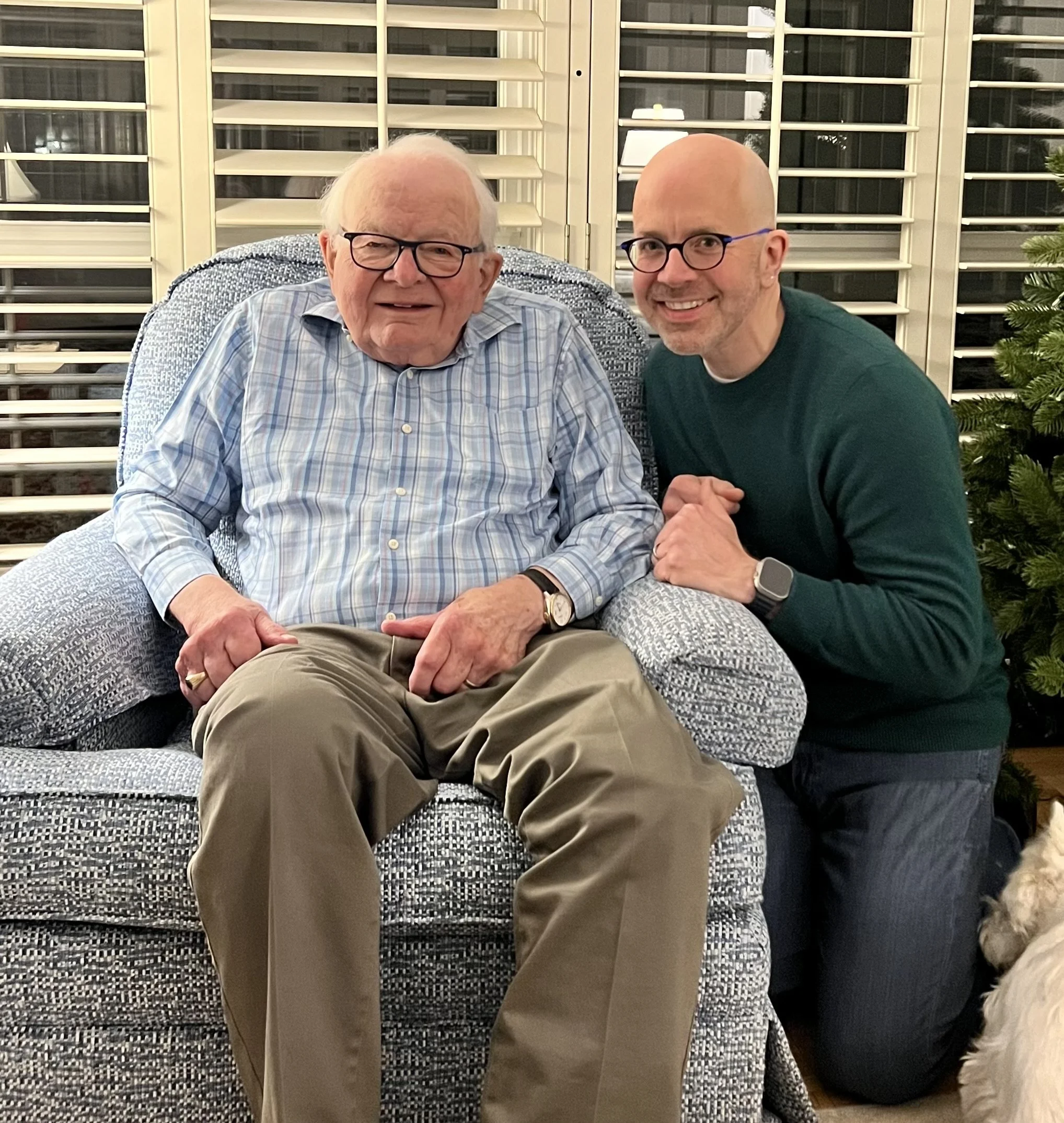I shared this today at my father’s funeral at Gloria Dei Lutheran Church, St. Paul, Minnesota. I followed my brother John, who shared delightful thoughts about our father’s love for family history and identity. All seven of us had small roles in the liturgy. We all miss him deeply.
But what should we call him? Many call him Gary. Nothing wrong with that, though we remember he did not seem to like his given name too much. So, often enough he is called “Judge,” even in the family. “What does the Judge say we should do?” “I found the best gift for the Judge.” That sort of thing.
But then “Judge” became an adjective, usually whenever he baked or cooked: Here, have a few judicial sugar cookies, crammed with nutmeg. Yes! He is making judicial caramel corn! Can we have judicial pizza tonight?
And of course we call him “Daddy.” I am sure I have never even once called him “Dad.” Always Daddy, a tender, immediate name for someone who held each of us newborns in one enormous hand. And then came the names Papa, and Pakka, and Grandpa. Daddy was the father of seven, and then two more, and the grandfather of twenty-five, and the great grandfather of five. He played with these numbers, affectionately. Daddy counted his flock. And there were no bad sheeps, by his counting. Zero goats.
Daddy skipped over names, his own and others’, and he tended to glide over transitions, too: he rarely employed a formal greeting, rarely spoke an elaborate goodbye. The conversation flows better that way. “SD!” he would say as I walked in, having flown into town for a visit. “Seattle is here,” he would announce to himself. And on my birthday this year he texted, “So the day goes,” no preamble. And then he wrote: “Remember 1970!” — his terse but cheery way to say “I love you.”
But this is not just a self-effacing personal style, Daddy’s avoidance of names and formalities, hellos and goodbyes. It is more: We grieve the departure of an authentically gentle, genuinely kind, truly humble servant and friend of God. His subtlety is graceful: Gary is a gentleman. His wisdom is tender: the Judge teaches mercy. His modesty is pastoral: Daddy cares for people.
In English we translate the Hebrew noun chesed a bit clumsily: we call it lovingkindness. But that’s it: that’s Gary, that’s the Judge, that’s Daddy, that’s Pakka, that’s Grandpa: chesed, lovingkindness.
We are forever his students.
